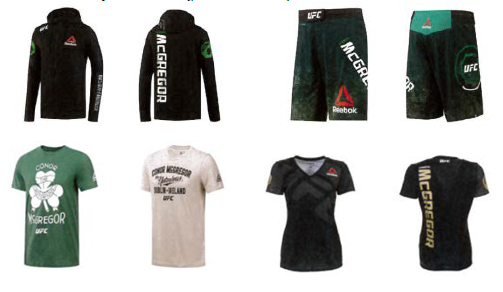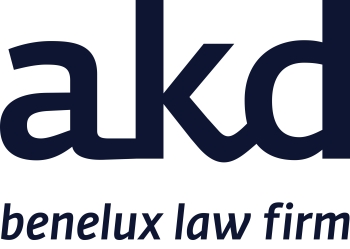On 10 August 2018 The Hague District Court rendered an interim judgment in a matter between Dutch limited liability company McGregor IP BV and adidas.
Fashion brand McGregor was established in 1971. It registered the word 'McGregor' as a Benelux trademark and an EU trademark for clothing and associated products.
adidas owns the REEBOK trademark. It operates a Dutch online shop with the domain name 'reebok.nl' and various online shops targeting other EU jurisdictions.
Among other things, the Reebok online shop offers the so-called 'Conor McGregor collection', which comprises Reebok clothing displaying the name Conor McGregor.

Conor McGregor is an Irish mixed martial arts (MMA) fighter and multiple Ultimate Fighting Championship world champion.
McGregor IP, owner of the MCGREGOR trademarks, summoned adidas to immediately cease and desist the use of any trademarks corresponding to its MCGREGOR marks, including the use of the Conor McGregor sign, in the European Union. According to McGregor, adidas's use of the sign constituted infringement of McGregor IP's exclusive rights to the MCGREGOR trademark.
adidas argued that McGregor IP's exclusive rights did not prohibit adidas from using a third party's name in the course of its trade where such third party is a natural person (Article 14 of the EU Trademark Regulation).
McGregor claimed that adidas's use of the Conor McGregor sign contravened honest practices in industrial or commercial matters.
The key question in this case was whether adidas – in using the name of a sports hero on items such as hoodies, shorts and jerseys – had infringed McGregor IP's trademark rights.
In the court's opinion, adidas's use of the Conor McGregor sign on clothing items contravened honest practices in industrial or commercial matters insofar as the use fell within the scope of Article 14 of the EU Trademark Regulation.
The court considered that the McGregor component of the Conor McGregor sign was prominently displayed on the garments. The first name was displayed in a smaller font and was a different a colour to the surname, putting the emphasis on the surname. The presiding judge held that if and when the relevant public observed the garments at a quick glance, they may not make the connection with the MMA fighter.
The court also held that adidas's claim that the name Conor, as displayed on the garments, was legible on closer inspection did not detract from this, as it agreed with McGregor IP's arguments that clothing is not always closely inspected by the public. This argument was supported by the fact that the Conor McGregor sign was printed exclusively on the back of the hoodie and jersey. According to the court, the front of clothing usually attracts more attention than the back (as acknowledged by adidas). As such, the court found that McGregor IP's concern that the public would overlook the Conor element was justified.
Contrary to adidas's arguments, MMA is not as well known in Europe as football. Therefore, the court rejected adidas's claim that the name Conor McGregor had the same reputation as the names of well-known football players.
The fact that McGregor is well known among followers of MMA is plausible, but the court ruled that the public in the case at hand must be considered more broadly.
The court therefore concluded that adidas's use of the Conor McGregor sign infringed McGregor IP's rights to the word mark MCGREGOR. It considered it likely that a significant proportion of the public would think that the clothing of McGregor IP and Reebok had the same origin or at least originated from economically linked companies.
The court's injunction was limited to adidas's use of the Conor McGregor and McGregor signs on the garments at issue. A broader injunction covering all use of these signs was not considered legitimate as this would cover all kinds of fan garment. Further, McGregor stated in the proceedings that it had no objection to fan garments bearing the name Conor McGregor.
Notably, the outcome of this matter could have been different had the design and display of the signs been different.
This case shows that there are a number of important elements to consider in such situations and that a case-by-case approach must be taken in each jurisdiction in which a party uses a sign on the basis of the facts and merits.
McGregor is well known to varying degrees in individual jurisdictions, largely depending on the popularity of MMA in that jurisdiction. In the Netherlands, MMA is not nearly as popular as football. Further, even though someone may be well known, the extent thereof may vary from country to country. Finally, a name's level of fame does not necessarily mean that parties can use that name in whatever fashion, as third-party rights must still be observed.
Parties should consider the above elements (at a minimum) to decide how to use the name of a well-known person while not infringing the older rights of a third party. Further, they should take care when promoting or paying tribute to a well-known personality by establishing whether any older rights to the same name exist and what form of use is permitted.
For further information on this topic please contact Huib Berendschot at AKD by telephone (+31 88 253 5000) or email ([email protected]). The AKD website can be accessed at www.akd.nl.
This article was first published by the International Law Office, a premium online legal update service for major companies and law firms worldwide. Register for a free subscription.



